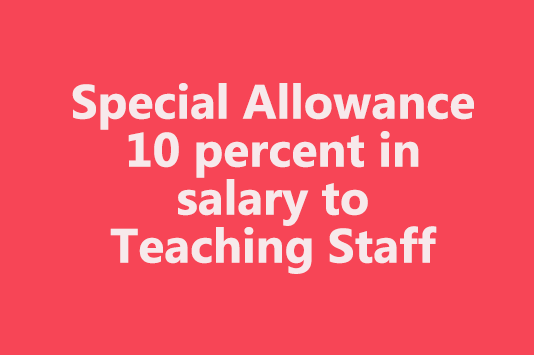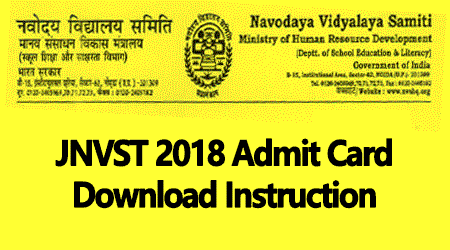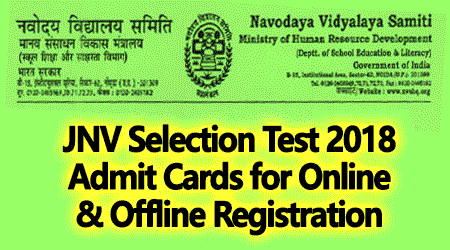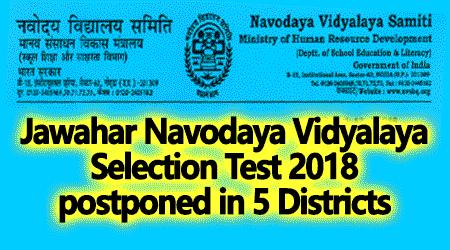A equation was raised in Parliament regarding proposal of Conducting Board Examinations Twice a Year under New Education Policy
Conducting Board Examinations Twice a Year
GOVERNMENT OF INDIA
MINISTRY OF HUMAN RESOURCE DEVELOPMENT
DEPARTMENT OF HIGHER EDUCATION
LOK SABHA
STARRED QUESTION NO. 108
TO BE ANSWERED ON 25.11.2019
Conducting Board Examinations Twice a Year
108. SHRI RAKESH SINGH:
Will the Minister of HUMAN RESOURCE DEVELOPMENT be pleased to state:
(a) whether the Government proposes to bring improvement in the assessment process under the New Education Policy in the country and if so, the details thereof;
(b) whether the NCERT proposes to conduct board examinations twice a year for this purpose and if so, the details thereof;
(c) whether the outcome of the new process of assessment is advantageous to the students; and
(d) if so, the details thereof?
ANSWER
MINISTER OF HUMAN RESOURCE DEVELOPMENT
(SHRI RAMESH POKHRIYAL ‘NISHANK’)
(a) to (d): A Statement is laid on the table of the House.
STARRED QUESTION NO. 108 FOR REPLY ON 25.11.2019 ASKED BY SHRI
RAKESH SINGH REGARDING CONDUCTING BOARD EXAMINATIONS TWICE
A YEAR
(a) to (d): The Government is currently in the process of formulating a New National Education Policy for meeting the changing dynamics of the population’s requirement with regard to quality education, innovation and research, aiming to make India a knowledge superpower. For this purpose, wide ranging consultations were undertaken at multiple levels of online, expert / thematic and grassroots from village to State, Zonal levels and the National level. In respect of School Education, 110623 at village level, 3250 at Block level, 725 at ULB level, 340 District level and 21 at State level consultations were undertaken. In respect of Higher Education, 2741 at Block level, 962 at ULB level, 406 at District level and 20 at State level consultations were undertaken. A number of in-person consultations were held with stakeholder Ministries in the Government of India (GoI) and also with the State Governments on NEP. The Government also conducted thematic consultations through University Grants Commission, All India Council for Technical Education, National Council for Teacher Education and several centrally funded universities and institutions, autonomous bodies, attached offices having domain expertise on the individual themes by inviting all relevant stakeholders including experts, academics, industry representatives, civil society etc. in July October, 2015.
Six Zonal Meetings were held by the then Minister of Human Resource Development in Eastern, Central, North-Eastern, Western, Southern and Northern Zones covering all States and UTs in September-October 2015 which was attended by Education Ministers and officials of the respective States/UTs. The CABE Meeting held on 19th August, 2015 discussed the progress/status of active involvement of State Governments in expediting
the process of grass root consultation. Discussions on main concerns to be addressed in New Education Policy (NEP) were taken up in the 64th Meeting of the Central Advisory Board of Education (CABE) held on 25th October, 2016.
Initially, a Committee for Evolution of the New Education Policy was constituted, which submitted its report in May, 2016 which was followed by the Ministry’s ‘Some Inputs for the Draft National Education Policy, 2016’, both of which are considered as inputs for policy formulation. The Report of the Committee for Evolution of the New Education Policy and Some Inputs for the Draft National Education Policy, 2016 were laid in both houses of the Parliament on 8th August, 2016 and 4th August, 2016 respectively. Thereafter, a Committee for the Draft National Education Policy was constituted in June 2017 under the Chairmanship of eminent scientist Dr. K Kasturirangan, which has submitted the Draft National Education Policy 2019(DNEP 2019) to the Ministry on 31st May 2019. The Draft NEP 2019 has been uploaded on MHRD’s website at https://mhrd.gov.in/sites/upload_files/mhrd/files/Draft_NEP_2019_EN_Revised.pdf and also at https://innovate.mygov.in/list-nep/ to elicit comments and suggestions from the various stakeholders. Further, letters were written to States /UTs Governments and Government of India Ministries inviting their views and comments on DNEP 2019. An Education Dialogue with Hon’ble MPs of Andhra Pradesh, Telangana, Tamil Nadu, Puducherry, Kerala, Karnataka & Odisha on three consecutive days i.e on 31.07.2019, 01.08.2019 & 02.08.2019.
Two meetings with State Education Secretaries of School Education and another with State Secretaries of Higher & Technical Education was held on 09.07.2019 and 08.08.2019 respectively. Around 2 lakh suggestions on the Draft National Education Policy received from various stakeholders. A Special meeting of CABE on National Education Policy was held on 21.09.2019, to discuss the National Education Policy. The Draft NEP 2019 contains recommendations for providing equitable access to quality education. However, at this stage no final view has been taken as the process of finalizing the National Education Policy is still ongoing.
It is further stated that NCERT’s role is inter-alia to develop National Curriculum Framework (NCF 2005), syllabi, and textbooks; teaching-learning materials and kits; training models and strategies; audio, video, and ICT materials.
Source : LokSabha



